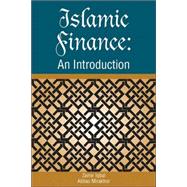
Dr. Abbas Mirakhor, born in Tehran, Islamic Republic of Iran, attended Kansas State University, where he received his Ph,D. in economics in 1969. From 1969 to 1984, he taught in various universities in the U.S. and Iran. From 1984 until 1990, he served on the staff of the IMF, and from 1990 to present, he has been the Executive Director for Afghanistan, Algeria, Ghana, Islamic Republic of Iran, Morocco, Pakistan, and Tunisia. Dr. Mirakhor is the co-editor of Essays on Iqtisad: Islamic Approach to Economic Problems (1989), and Theoretical Studies in Islamic Banking and Finance (1987). He has received several awards including "Order of Companion of Volta" for service to Ghana, conferred by the President of Ghana in 2005; Islamic Development Bank Annual Prize for Research in Islamic economics, shared with Mohsin Khan in 2003, and "Quaid-e Azam" star for service to Pakistan, conferred by the President of Pakistan in 1997.
| Glossary | ix | ||||
|
1 | (30) | |||
|
31 | (22) | |||
|
53 | (24) | |||
|
77 | (22) | |||
|
99 | (26) | |||
|
125 | (24) | |||
|
149 | (22) | |||
|
171 | (32) | |||
|
203 | (24) | |||
| 10 Risk Management of Islamic Financial Institutions | 227 | (24) | |||
| 11 Regulation of Islamic Financial Institutions | 251 | (22) | |||
| 12 Corporate Governance | 273 | (22) | |||
| 13 Globalization and Challenges for Islamic Finance | 295 | (18) | |||
| References | 313 | (6) | |||
| Bibliography | 319 | (8) | |||
| Index | 327 |
The New copy of this book will include any supplemental materials advertised. Please check the title of the book to determine if it should include any access cards, study guides, lab manuals, CDs, etc.
The Used, Rental and eBook copies of this book are not guaranteed to include any supplemental materials. Typically, only the book itself is included. This is true even if the title states it includes any access cards, study guides, lab manuals, CDs, etc.